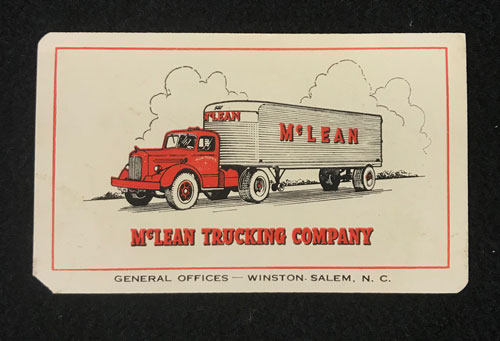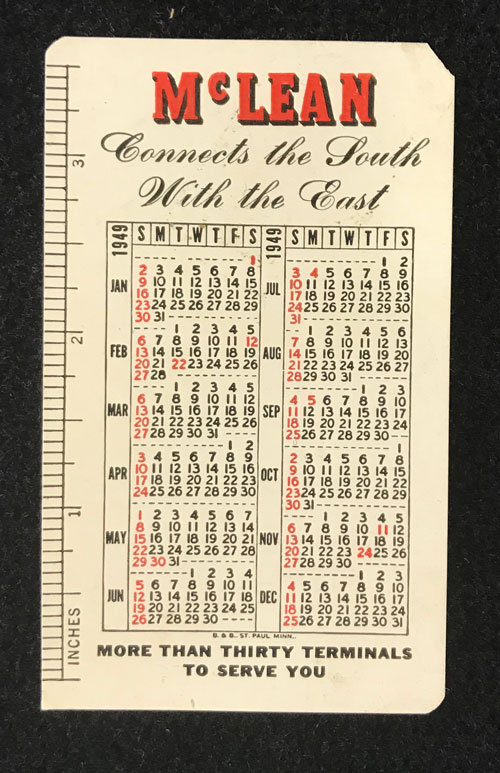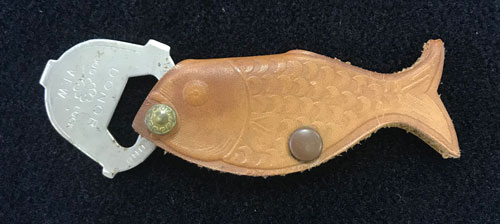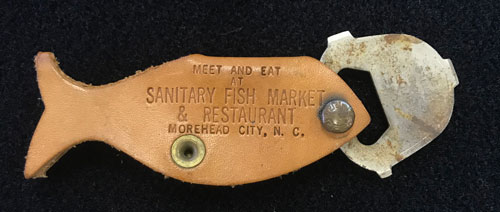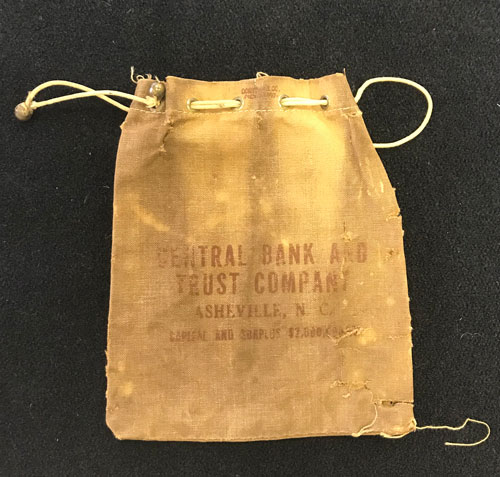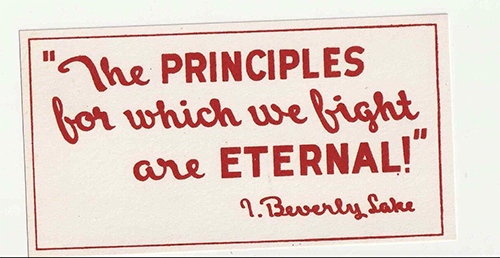“In 1931, when Malcolm [later Malcom] P. McLean began working at a service station, North Carolina was rapidly becoming a major east-west transport route. Recognizing the potential for motor freight carrying, the Maxton native bought his first truck in 1934 and began hauling dirt for WPA road construction projects. Later, he transported textiles to New York. By the mid-1960s, the McLean Trucking Company had become the fifth-largest trucking company in America, with a fleet of 5,000 trucks and trailers and 65 terminals scattered throughout 20 states….”
— From “McLean Trucking Company” by Robert E. Ireland in the Encyclopedia of North Carolina
Even more significant – much more significant, actually – would be McLean’s invention of containerized shipping.

